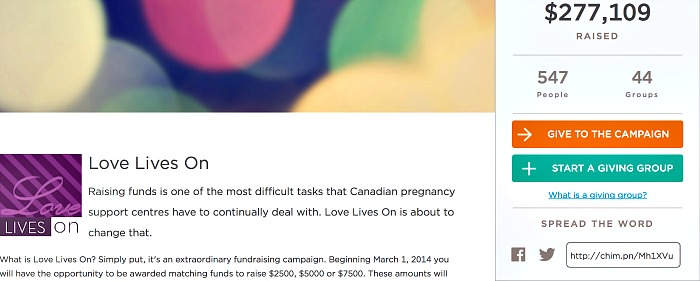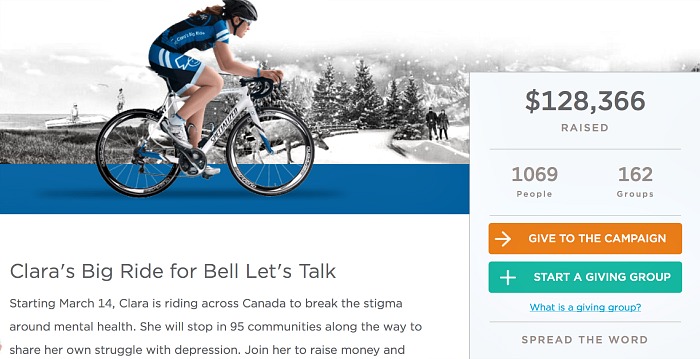The Perfect Match: How Donation Matching Can Boost Your Fundraising Campaign
August 05, 2014
5 min read
Giving charitably may be part of human nature, but sometimes even the most generous donors can benefit from a little incentive. After all, everyone loves to see their money double, especially when that money is going to a good cause.
Offering to match—or double—individual donations can boost campaign results, according to Yale University and University of Chicago research, which found a match “significantly increases the probability that an individual donates—by 22 percent.” Matching can work especially well in fundraising campaigns as an incentive for donors.
“Matching engages new donors because their dollar is going further,” said Jeff Golby, donor relations manager at Chimp. Securing matching money from a sponsor or lead donor can give your fundraising campaign a powerful boost. Here’s a look at how donation matching on Chimp can work for you.
How Donation Matching Works
Donation matching means that every donation—up to a pre-determined maximum—is doubled. In a corporate giving scenario, this means the employer typically offers to match employees’ charitable donations.
For charities, donation matching usually starts with a large individual donation or corporate sponsorship, which is used to double individual donations in a grassroots fundraising campaign.
On Chimp, donations are matched automatically and in real-time, so fundraisers save administration time and donors can see the doubling effect immediately.
Donation Matching Successes
We’ve seen first-hand how donation matching can contribute to the success of a fundraising campaign.
In the Love Lives On campaign, a fundraiser in support of Canadian pregnancy centres, a $100,000 matching fund was used to inspire charity outreach efforts.

The 30 participating centres were offered a maximum matching amount of $15,000 each, spurring competition to activate their potential share of the funds before the money ran out. This sense of urgency, along with some carefully crafted messaging, content and outreach plans, led to a campaign total of $277,109, an incredible success for a group of small charities.
Matching money also played a key role in inspiring charitable giving during Clara’s Big Ride for Bell Let’s Talk. Two distinct matching phases during the campaign correlated to spikes in donations, and worked especially well for small charities that were able to leverage relationships with donors to make the match meaningful.

“I thought we had tapped out most of our donors, especially those who were already giving, but it turns out that matching funds inspired abundant giving,” said Beth Carlson-Melena, co-director at Jacob’s Well, a Vancouver-based charity that raised $15,000, the highest amount raised by a charity involved in Clara’s Big Ride fundraising. By matching donations up to a maximum of $100 during its Wellness Through Friendship campaign, it was able to motivate existing donors and attract new ones. “I think people feel the urgency to give that they might not feel otherwise,” Carlson-Melena added.
It’s not just charities that can take advantage of matching money. When a group of friends launched Ruben’s Shoes to send 10,000 pairs of shoes to children in the Dominican Republic, they recruited a high-profile matching donor—Michael Buble—to inspire people to give to their campaign.

But you don’t have to have a high-profile donor for matching to work for you. “Even putting up $1,000 or $500 to get your friends involved really works,” Golby said. “Matching works, even on a small level.”
5 Ways to Make Donation Matching Work for You
While matching money is a great incentive, following these tips will help you ensure it’s working as hard as possible to make your campaign a success.
- Create a Sense of Urgency: Rather than running your campaign until the matching money runs out, put a timeline on it. This creates a sense of urgency and prompts donors to give now rather than wait until later.
- Communicate Often: Develop a communication schedule that reminds your audience that, for a limited time, their money goes further. This should include teasing the campaign before launch, officially announcing the launch, reminding people mid-way through, and reminding them again before the campaign wraps up. Following up on campaign results is a good way to thank your donors and share their impact.
- Choose Your Timing: Make use of a matching incentive during a time when it’s traditionally difficult to fundraise. In other words, maybe not during traditional giving seasons like Christmas.
- Set Your Priorities: While maxing out on your matching dollars may seem like the goal, don’t forget that this is a great opportunity to grow your donor list. If you limit the maximum value that will be matched, you’ll give more donors an opportunity to benefit from the match, and simultaneously grow your list.
- Be Flexible: Matching isn’t only useful for charities. Individuals and groups can leverage donation matching to amplify their fundraising efforts too, as long as a charity is the end benefactor.
Interested in launching a matching campaign? Contact us and we can help you get started!
